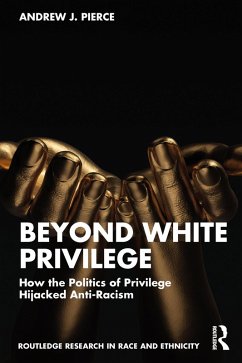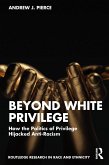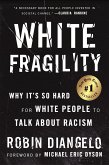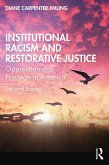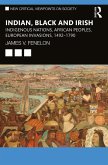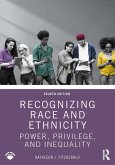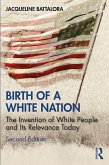How did this come to be? Beyond White Privilege traces the path by which an idea with radical potential got 'hijacked' by a liberal anti-racism that sees individual prejudice as racism's primary manifestation, and white moral transformation as its appropriate remedy. This 'politics of privilege' proves woefully inadequate to the enduring forms of racial and economic injustice shaping the world today. For educated white elites, privilege recognition has become a ritual of purification distinguishing them from their working-class counterparts. For the white working class, whose privileges have eroded, but not disappeared, the politics of privilege often looks like class scapegoating - a process that has helped to drive increasing numbers of alienated whites into the arms of white nationalist movements.
This book offers an alternative path: an 'interest convergence' approach that recaptures the radical potential of white privilege discourse by emphasizing converging, cross-racial interests - in education, housing, climate justice, and others - that reveal that the 'racial bribe' of whiteness is ultimately contrary to the interests of working-class whites. It will therefore appeal to readers across the social sciences and humanities with interests in issues of racial inequality and social justice.
Dieser Download kann aus rechtlichen Gründen nur mit Rechnungsadresse in A, B, BG, CY, CZ, D, DK, EW, E, FIN, F, GR, HR, H, IRL, I, LT, L, LR, M, NL, PL, P, R, S, SLO, SK ausgeliefert werden.
- Alex Zamalin, Rutgers University, author of Antiracism: An Introduction.
"This book is a must read for educators at all levels, especially for those teaching the topic of racial inequality. Pierce shows how merely asking white students to acknowledge their racial privilege is inadequate, and offers the kind of new approach needed for a nation increasingly roiled by racial division and injustice."
- Leslie Margolin, University of Iowa, author of Unpacking the Invisible Knapsack: The Invention of White Privilege Pedagogy.
"This provocative book challenges us to think anew about what we really want from anti-racism, redirecting our focus to the real prize: improving material conditions for people of color and white people alike."
- Lisa Pruitt, UC Davis Martin Luther King Jr. Professor of Law.

